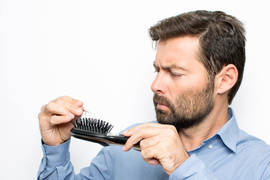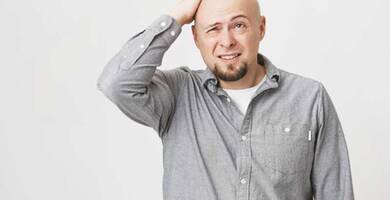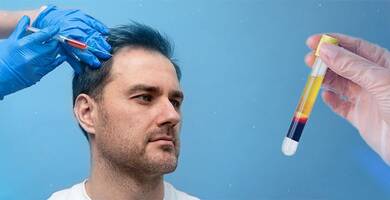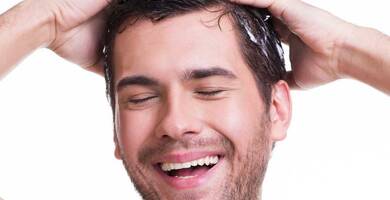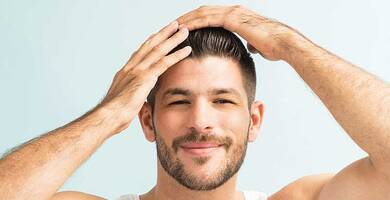Recovery Tips After Hair Implantation
By Prof. Dr. Soner Tatlidede 2024-04-15
A hair transplant procedure can be a transformative experience. But to ensure your newly implanted follicles thrive, proper aftercare is very essential. This article equips you with key hair transplant recovery tips or post-operative instructions to minimize discomfort, optimize healing, and pave the way for a successful hair transplant journey for you.
Hair transplant recovery timeline : what to expect
Following a hair transplant procedure , in order to get back to your normal routine, your recovery takes time and proper care. Let's have a look at what to expect during the recovery timeline :
The first few days ( 1-2 weeks ) after hair transplant :
- Rest and relaxation
Your surgeon will likely recommend taking 1-2 weeks off work to allow for proper healing. During this time, you should be extra gentle with the transplanted area. The grafts are delicate and can be easily dislodged.
- Post-Operative care
Your surgeon will provide detailed instructions on caring for the transplanted area. This typically involves using a prescribed spray and avoiding touching the grafts.
- Reduced activity
Strenuous exercise may be restricted in the first month to minimize swelling and scar formation. Light walks are generally encouraged.
The Next Few Weeks ( 2-4 months ) after hair transplant :
- Washing up
After 2-5 days, you'll be able to gently wash your hair with your doctor's recommended shampoo.
- Stitch removal
Any non-dissolvable stitches are typically removed around 10-14 days after surgery.
- Shedding phase
Don't be alarmed if the transplanted hair falls out within a few weeks. This is a normal part of the growth cycle, and the hair will eventually regrow.
The long haul ( 4 months - 18 months ) after hair transplant :
- New Hair Growth
Around the 4-month mark, you should start noticing new hair growth at the transplant site.
- Patience is Key
It takes time for the transplanted hair to reach its full potential. The final results, showcasing the full density and thickness of the new hair, are typically visible between 10 -18 months after your procedure.
Remember, this is a general timeline, and hair transplant recovery experiences may vary from person to person. Following your surgeon's specific instructions and maintaining good post-operative care are very crucial for optimal healing and successful hair growth.
Post-Operative instructions for hair transplant aftercare : a guide to optimal healing
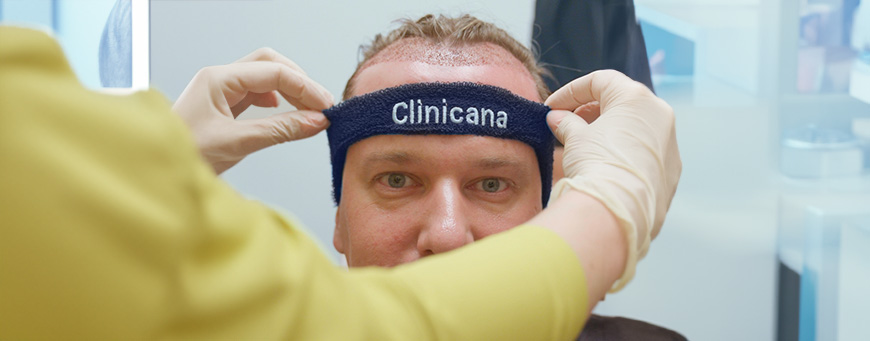
Following a procedure, proper hair transplant aftercare is very necessary for optimal healing and successful hair growth. Those are the most common post-operative instructions you should follow :
Rest and Recuperation
- Bandage Removal
The bandage will likely be removed within one or two days after surgery. Your surgeon will provide specific instructions on caring for the exposed area.
Physical activity
- Strenuous exercise
Avoid strenuous physical activity, including sports and workouts, for the first month after the procedure. This will help minimize swelling and prevent undue stress on the newly implanted hair follicles. But, after two weeks, a light gym workout is permissible, as long as it does not elevate your blood pressure excessively.
Lifestyle modifications
- Smoking and tobacco
Smoking and tobacco which based on nicotine ( Cigarettes, Cigars, E-cigarettes, Shisha ) are strictly discouraged for at least one month post-surgery. Smoking deprives the body of oxygen , hindering the hair transplant recovery or healing process and possibly affecting hair growth results.
- Alcohol consumption
Avoid alcohol consumption for at least one week after surgery. Alcohol can interfere with medication effectiveness and potentially elevate blood pressure, impacting healing.
- Swimming
Refrain from swimming in pools or any bodies of water for a month after the procedure. Chlorine and bacteria can irritate the scalp and hinder healing.
- Headwear
You should wait two weeks before wearing any hats, helmets, or headgear. This allows the scalp to breathe and minimizes friction that could dislodge the grafts.
Hair care
- Haircutting
Wait at least one month before getting a haircut. When you do, inform your barber to only use scissors in the transplanted area for the first six months. Clippers, electric razors, and blades can damage the grafts.
- Hair coloring
Hair coloring should be avoided for the first six months. The chemicals in hair dyes can negatively impact the transplanted follicles.
- Shampooing
Use a pH-neutral or chemical-free shampoo for the first six months after surgery. Organic shampoos are a good option.
- Styling products
Avoid using gels, styling sprays, hair oils, or any products containing chemicals for the first six months. These can irritate the scalp and potentially hinder hair transplant recovery or healing.
Other considerations
- Sexual Activity
Refrain from sexual activity for up to two days after surgery. Increased blood pressure during intimacy can dislodge the grafts.
- Medications
Take all prescribed medications ( Antibiotics and Pain Relievers ) as directed by your doctor.
- Sleep
Maintain a comfortable sleeping position that minimizes pressure on the transplanted area. Consider sleeping on your back with your head slightly elevated.
- Diet
You are advised to maintain a healthy diet rich in vitamins and nutrients to support healing and hair growth.
- Sun exposure
Limit direct sunlight exposure to the scalp for at least a month. Wear a hat or use sunscreen with SPF 30 or higher when outdoors.
- Discomfort
Mild swelling, redness, and scabbing are normal after your procedure. But, if you experience excessive discomfort or any unusual symptoms, it is very necessary to contact your doctor immediately.
Following these post-operative instructions lays the foundation for long-lasting results. With optimal healing and proper aftercare, you'll soon be sporting a healthy, natural-looking head of hair. Don't hesitate to reach out to your doctor if you have any questions.
Sources:
https://www.nhs.uk/conditions/cosmetic-procedures/cosmetic-surgery/hair-transplant/
https://www.clinicana.com/faq-hair-transplant-questions/
https://www.webmd.com/skin-problems-and-treatments/hair-loss/hair-transplants

